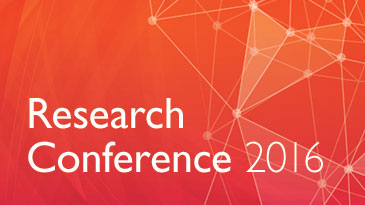
Location
Mezzanine M3
Start Date
9-8-2016 11:15 AM
End Date
9-8-2016 12:30 PM
Subjects
STEM education, Creative arts, Interdisciplinary approach, Citizenship, Science curriculum, Skills, Sustainable development
Abstract
Well-recognised as a powerful driver of national economic growth, STEM lies at the heart of calls worldwide for educational reform. In Australia, Chief Scientists are calling for STEM education to better engage students on STEM-related career pathways. In the USA, STEM educators are being urged to produce graduates with creative and innovative abilities required of an increasingly high-tech workforce. However, an equally important challenge for STEM education is to prepare young people with general capabilities for active participation in community and professional forums for addressing ethical issues associated with the global impact of science and technology. Education for sustainable development remains a pressing priority. Thus, STEM educators are being challenged to design curricula and pedagogies to develop students' disciplinary knowledge and skills as well as their abilities as critical consumers, creative and ethically astute citizens, innovative designers, good communicators and collaborative decision-makers. There is an international wellspring of educators endeavouring to meet this challenge by combining STEM and the Arts to produce a multi-literate citizenry and workforce for the 21st Century. In this presentation I will outline how two secondary schools in Western Australia are developing interdisciplinary STEAM curricula.
Recommended Citation
Taylor, P. C. (2016, August 09). Why is a STEAM curriculum perspective crucial to the 21st century? [Paper presentation]. Research Conference 2016 - Improving STEM Learning : What will it take?. https://research.acer.edu.au/research_conference/RC2016/9august/6
Copyright Statement
Copyright Australian Council for Educational Research 2016
Place of Publication
Melbourne Vic
Publisher
Australian Council for Educational Research (ACER)
ISBN
9781742864075
Why is a STEAM curriculum perspective crucial to the 21st century?
Mezzanine M3
Well-recognised as a powerful driver of national economic growth, STEM lies at the heart of calls worldwide for educational reform. In Australia, Chief Scientists are calling for STEM education to better engage students on STEM-related career pathways. In the USA, STEM educators are being urged to produce graduates with creative and innovative abilities required of an increasingly high-tech workforce. However, an equally important challenge for STEM education is to prepare young people with general capabilities for active participation in community and professional forums for addressing ethical issues associated with the global impact of science and technology. Education for sustainable development remains a pressing priority. Thus, STEM educators are being challenged to design curricula and pedagogies to develop students' disciplinary knowledge and skills as well as their abilities as critical consumers, creative and ethically astute citizens, innovative designers, good communicators and collaborative decision-makers. There is an international wellspring of educators endeavouring to meet this challenge by combining STEM and the Arts to produce a multi-literate citizenry and workforce for the 21st Century. In this presentation I will outline how two secondary schools in Western Australia are developing interdisciplinary STEAM curricula.


Comments
Concurrent session Block 3